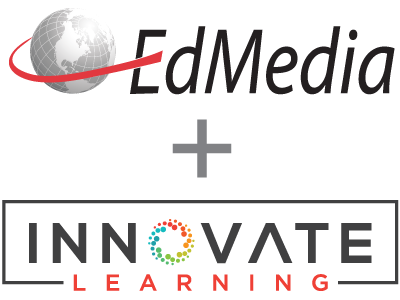
Perceptions for Tool Use: In Search of a Tool Use Model
PROCEEDINGS
Norma A. Juarez Collazo, Jan Elen, Katholieke Universiteit Leuven, Mexico ; Geraldine Clarebout, Katholieke Universiteit Leuven- kulak, Belgium
EdMedia + Innovate Learning, in Denver, Colorado, USA ISBN 978-1-880094-95-2 Publisher: Association for the Advancement of Computing in Education (AACE), Waynesville, NC
Abstract
The Technology Acceptance Model (TAM) has successfully determined systems’ adoption and use and highlighted the role of perceptions. This model, however, does not specifically depict the role of perceptions in the use of support devices, namely tools, within a computer-based learning environment (CBLE). Based on the TAM and considering the cognitive mediational paradigm, the present contribution suggests a tool use model focusing on perceptions that influence tool use in a CBLE. Moreover, this paper explores the use of tools quantitatively and qualitatively within an experimental setting rather than self-reported tool use as indicated in previous TAM literature. Finally, it explores the effects of tool use on learning outcomes (performance). This study led to the design of perceptions for tool use: Perceived functionality and perceived usability. Overall, the findings suggested that perceived usability influences perceived functionality which in turn affects performance. Performance was also affected by quantity of tool use.
Citation
Juarez Collazo, N.A., Elen, J. & Clarebout, G. (2012). Perceptions for Tool Use: In Search of a Tool Use Model. In T. Amiel & B. Wilson (Eds.), Proceedings of EdMedia 2012--World Conference on Educational Media and Technology (pp. 2905-2912). Denver, Colorado, USA: Association for the Advancement of Computing in Education (AACE). Retrieved September 1, 2024 from https://www.learntechlib.org/primary/p/41181/.
© 2012 Association for the Advancement of Computing in Education (AACE)
References
View References & Citations Map- Ajzen, I., & Fishbein, M. (1980). Understanding attitudes and predicting social behavior/ Icek Ajzen, Martin Fishbein. Englewood Cliffs, N.J. : Prentice-Hall.
- Behling, O., & Law, K.S. (2000). Translating questionnaires and other research instruments: Problems and solutions. Thousand Oaks, CA: Sage Publications.
- Cho, V., Cheng, T.C.E., & Lai, W.M.J. (2009). The role of perceived user-interface design in continued usage intention of self-paced e-learning tools. [Reports-Evaluative]. Computers& Education, 53(2), 216227.
- Clarebout, G., Horz, H., Schnotz, W., & Elen, J. (2010). The relation between self-regulation and the embedding of support in learning environments Educational Technology Research and Development 1-15. Doi:10.1007/s11423-009-9147-4
- Davis, F.D. (1989). Perceived usefulness, perceived ease of use, and user acceptance of information technology. MIS Quarterly, 13(3), 319-340.
- Davis, F.D., Bagozzi, R.P., & Warshaw, P.R. (1989). User acceptance of computer technology: A comparison of two theoretical models. Management Science, 35(8), 982-1003.
- Elen, J., & Clarebout, G. (2006). The use of instructional interventions: Lean learning environments as a solution for a design problem. In J. Elen& R. Clark (Eds.), Handling complexity in learning environments: Theory and research. Advances in Learning and Instruction (pp. 185-200). Amsterdam: Elsevier.
- Gao, Y. (2005). Applying the Technology Acceptance Model (TAM) to educational hypermedia: a field study. Journal of Educational Multimedia and Hypermedia, 14(3), 237-247.
- Goodwin, N.C. (1987). Functionality and usability. Communications of the ACM, 30(3), 229-233.
- Hong, K.-S., Cheng, J.L.A., & Liau, T.-L. (2005). Effects of system's and user's characteristics on e-learning use: A study at Universiti Malaysia Sarawak. Journal of Science and Mathematics Education in Southeast Asia, 28(2), 1-25.
- Huet, N., Escribe, C., Dupeyrat, C., & Sakdavong, J.-C. (2011). The influence of achievement goals and perceptions of online help on its actual use in an interactive learning environment. Computers in Human Behavior, 27(1), 413-420.
- Jiang, L., & Elen, J. (2010). The impact of motivation-related variables on scaffold use. Paper presented at the EARLI SIG 6 & 7: Instructional design for motivated and competent learning in a digital world, Ulm, Germany.
- Legris, P., Ingham, J., & Collerette, P. (2003). Why do people use information technology? A critical review of the technology acceptance model. Information& Management, 40(3), 191-204. Doi: Pii S03787206(01)00143-4
- Lust, G., Juarez-Collazo, N.A., Elen, J., & Clarebout, G. (2012). Content management systems: Enriched-2911-learning opportunities for all? Computers in Human Behavior, 28(3), 795-808. Doi: http://dx.doi.org/10.1016/J.chb.2011.12.009Nunnally,Y.J.(1978).PsychometricTheory. New York: McGraw Hill.
- Perception. (2010). English.oxforddictionaries.com. Oxford University Press, Retrieved November 23, 2011, from http://english.oxforddictionaries.com/definition/perception Perkins, D.N. (1985). The fingertip effect: How information-processing technology shapes thinking. Educational Researcher, 14(7), 11-17.
- Pituch, K.A., & Lee, Y.K. (2006). The influence of system characteristics on e-learning use. Computers& Education, 47(2), 222-244. Doi:10.1016/J.compedu.2004.10.007
- Shrout, P.E., & Fleiss, J.L. (1979). Intraclass correlations: Uses in assessing rater reliability. Psychological Bulletin, 86(2), 420-428.
- Winne, P.H. (1987). Why process-product research cannot explain process-product finding and a proposed remedy: The cognitive mediational paradigm. Teaching and Teacher Education, 3(4), 333-356.
These references have been extracted automatically and may have some errors. Signed in users can suggest corrections to these mistakes.
Suggest Corrections to ReferencesCited By
View References & Citations Map-
Effects of questioning advance organizers on learning outcomes in a web-based learning object on research and academic skills
Christine Brunn, Fachhochschule Lübeck, Germany; Joshua Weidlich & Theo Bastiaens, FernUniversität in Hagen, Germany
EdMedia + Innovate Learning 2018 (Jun 25, 2018) pp. 1951–1960
These links are based on references which have been extracted automatically and may have some errors. If you see a mistake, please contact info@learntechlib.org.
Slides
- ED-MEDIA2012NormaAJuarez_2012Jun26.pdf (Access with Subscription)
